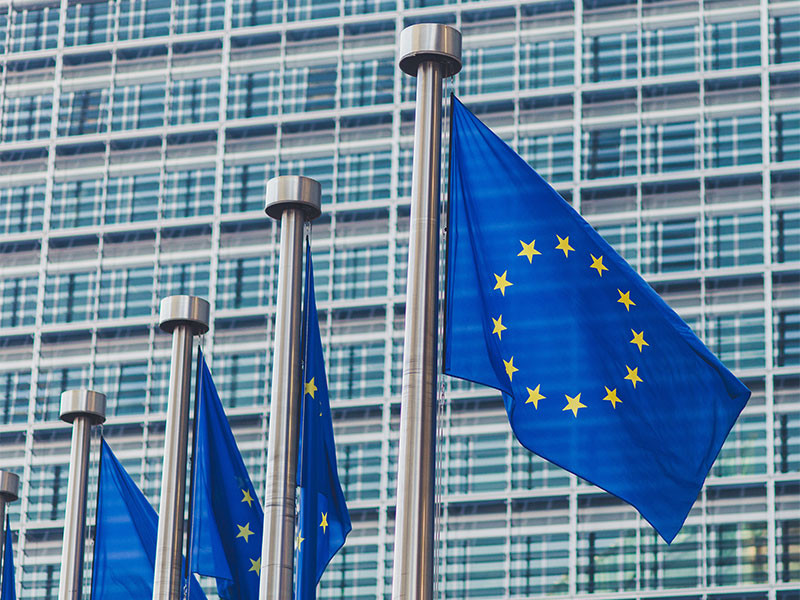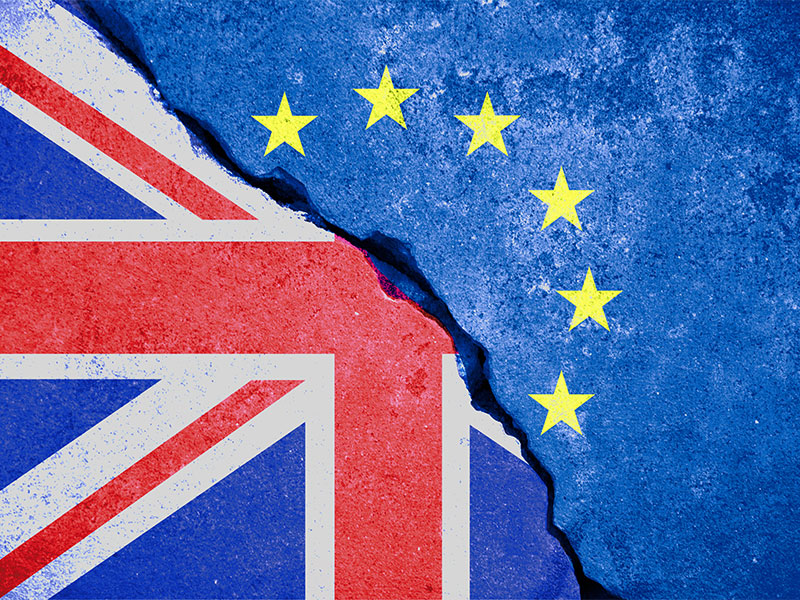English as a lingua franca, until when?

A lingua franca is one that has been adopted as a communication tool between people who do not share the same mother tongue and who, due to economic, political, cultural or other reasons, have to communicate with each other in a common language.
If we focus on the European context, especially in the European Union, where many countries coexist, each one with its own official language, it is obvious that there is a great need for a common language that can be used to communicate, not only socially, but also institutionally.
English in the European institutions.
One of the founding principles of the European Union is multilingualism, that is that one of its objectives is to be able to make sure that any citizen can communicate with the European institutions in any of the 24 official languages that currently exist. In addition, they also want to protect Europe's linguistic diversity and promote language learning; in fact, they aim to enable citizens to communicate in at least two different languages apart from their mother tongue.
From 1958 to the mid-1970s, the dominant language in the European institutions was French, as it was the official language of three of the six founding states (France, Belgium and Luxembourg). In addition, French was studied in the other member states and the headquarters were in Brussels and Strasbourg, cities where French was the predominant language.
At the end of the 1970s, English began to replace French in many fields such as international politics, trade, science, technology and culture, perhaps due to the great irruption of American culture in Europe. English learning also began to be introduced in European educational centres, and little by little it was gaining ground over French.
As for the institutions, English was first introduced in 1973 when the United Kingdom and Ireland joined the EEC, but it did not expand until 1993 when Sweden, Finland and Austria joined the EU and its use took hold when Cyprus, Estonia and the Czech Republic, countries whose second language was English, entered in 2004.
In the European Parliament, any MEP can speak in their mother tongue if they wish, as simultaneous translation is provided in the European institutions. Even so, many of them prefer to use English, and to a lesser extent French or German, for their speeches, because they know that their message will get through better if it is expressed directly and not through a translator. It should be emphasised that all the information about what takes place in the European Parliament is translated into the 24 official languages.

And after the Brexit what?
It is said that English will no longer be the common language used in the European institutions when the UK leaves the EU, and that French and German will take over. Furthermore, although Ireland and Malta have English as their official language, only one country can register it as an official language and at the time the United Kingdom did so, which means that the official language registered by Ireland is Gaelic and Maltese in Malta. Consequently, when the English leave the EU, English will no longer be an official language and could be legally unprotected once Brexit has taken place, unless Ireland presents it as its official language.
However, considering that 97.3% of European secondary school students continue studying English as a second language, it is logical to think that it will be very difficult for this language to be replaced by French or German.
We also have to take into account the financial sector, and the fact is that in the business world the vehicular language is English and this aspect can be a decisive pressure point for English to remain the language used in high European authorities. Even so, in some institutions such as the Court of Justice, French is still the main language used.
Seeing the increase in the number of people who have English as a second language, it is difficult to think that it could be replaced by any other language, at least in social environments; as far as the institutions are concerned, probably the same will happen, because even if we are talking about Europe, we are connected to the rest of the world and English is still the language of choice when communicating in any field, be it political, financial or for travelling.
Artículos relacionados
Comment















